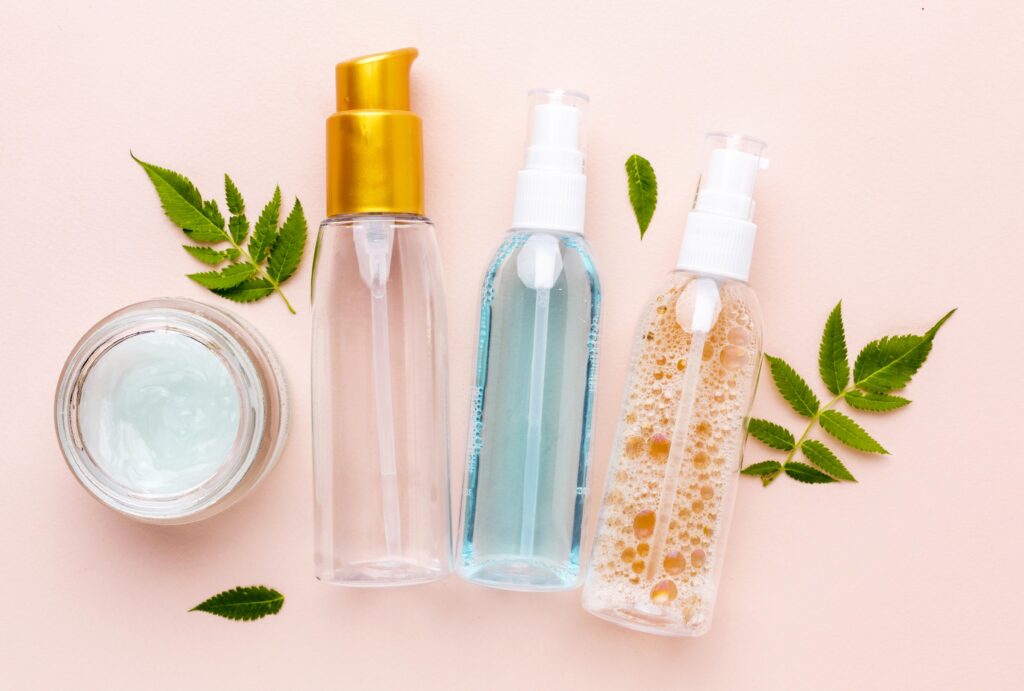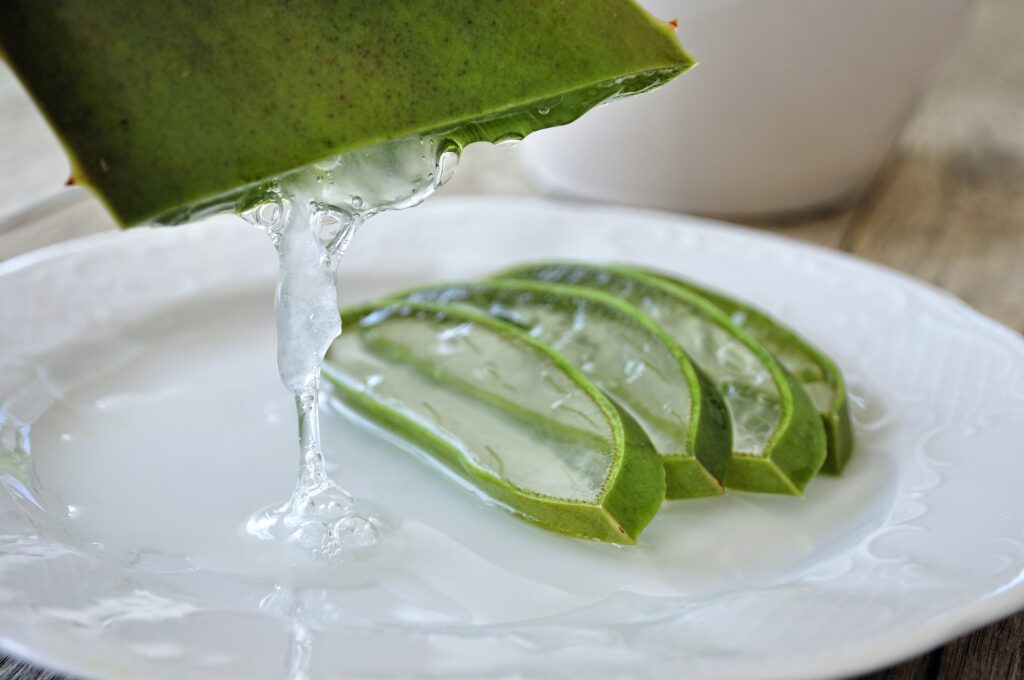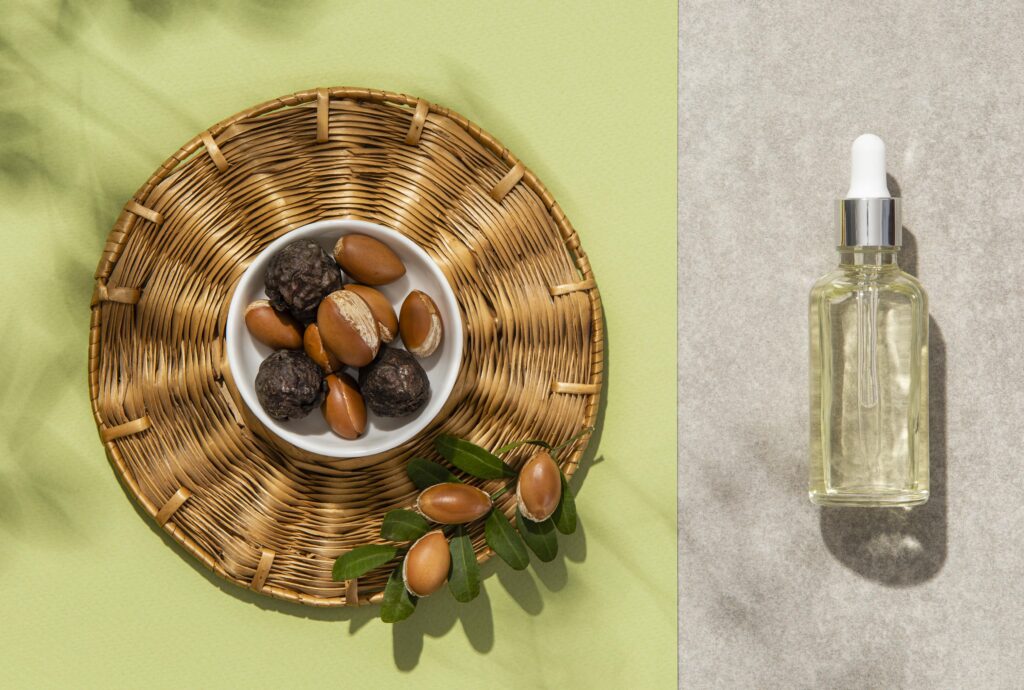
Ever wonder what that long list of ingredients on your skincare products actually means? You’re not alone! Many of those ingredients are scientifically engineered, which can be a concern for some people. If you’re looking for natural, GMO-free ways to pamper your skin, this article is for you!
We’ll explore 10 fantastic GMO-free solutions that can help you achieve healthy, glowing skin, all without resorting to harsh chemicals or genetically modified ingredients. But first, let’s understand what GMOs are and why some people prefer to avoid them.
What are GMOs?
GMO stands for Genetically Modified Organism. This simply means that the genetic makeup of a plant, animal, or bacteria has been altered in a lab. Scientists do this for various reasons, such as creating crops that are resistant to pests or diseases.
Why Choose GMO-Free Skincare?
There’s no scientific consensus on whether GMOs are harmful to humans. However, some people prefer to avoid them out of caution or because they believe natural ingredients are better for their skin. Additionally, some GMO crops may be treated with herbicides or pesticides, which can irritate the skin.
10 Best GMO-Free Skin-Friendly Solutions
Now that we’ve covered the basics, let’s dive into some amazing GMO-free options for your skincare routine!
Coconut Oil:
This versatile oil is a natural moisturizer and can be used on your face, body, and even hair! Coconut oil has antibacterial and antifungal properties, making it great for fighting acne and keeping your skin healthy [What is Coconut Oil? Health benefits, culinary uses and more: https://www.healthline.com/nutrition/top-10-evidence-based-health-benefits-of-coconut-oil]. Look for virgin or unrefined coconut oil for the most benefits.
Honey:
Nature’s sweet treat is also a fantastic skin soother! Honey has antibacterial and humectant (moisture-attracting) properties, making it perfect for dry or irritated skin. You can use raw honey as a face mask or add it to your DIY skincare recipes [Honey and Skin Health: Benefits and Potential Risks: https://pubmed.ncbi.nlm.nih.gov/24305429/].
Aloe Vera:
This cooling gel is a natural anti-inflammatory and can help soothe sunburns, bug bites, and irritated skin. Aloe vera is also hydrating and can be used as a daily moisturizer [Aloe Vera: https://www.mayoclinic.org/drugs-supplements-aloe/art-20362267].


Oatmeal:
t’s not just for breakfast! Oatmeal is a gentle exfoliant that can help remove dead skin cells and soothe irritation. You can use finely ground oatmeal in a DIY face mask or add it to your bath for a calming soak [Oatmeal for Skin Care: Uses and Benefits: https://www.healthline.com/nutrition/9-benefits-oats-oatmeal].
Apple Cider Vinegar:
This vinegar is a natural astringent, meaning it helps tighten pores and control oil production. It can also help balance your skin’s pH level. Dilute apple cider vinegar with water before applying it to your face to avoid irritation [Apple Cider Vinegar for Skin Care: Uses, Benefits, and Risks: https://www.healthline.com/health/video/apple-cider-vinegar-uses].
Jojoba Oil:
This oil closely resembles the natural oils produced by our skin, making it a fantastic moisturizer. Jojoba oil is non-comedogenic, meaning it won’t clog your pores, and is suitable for all skin types [Jojoba Oil for Skin: Benefits and Uses: https://www.healthline.com/health/beauty-skin-care/jojoba-oil-for-face].


Shea Butter:
This rich butter is a great source of vitamins A and E, which are essential for healthy skin. Shea butter is deeply moisturizing and can help soothe dry, cracked skin [Shea Butter for Skin: Benefits and Uses: https://www.healthline.com/health/beauty-skin-care/what-is-shea-butter].
Green Tea:
Not just for drinking! Green tea is loaded with antioxidants that can help protect your skin from damage caused by free radicals. You can use brewed green tea as a facial toner or find skincare products containing green tea extract [Green Tea for Skin: Benefits and Uses: https://www.healthline.com/health/benefits-of-green-tea-for-skin].
Sea Buckthorn Oil:
This oil is a powerhouse of vitamins and antioxidants. It can help reduce wrinkles, improve skin elasticity, and even fade hyperpigmentation (dark spots) [Sea Buckthorn Oil for Skin: Benefits and Uses: https://www.healthline.com/nutrition/sea-buckthorn-oil].
Clay Masks:
Clay masks are a natural way to detoxify your skin and absorb excess oil. Depending on the type of clay, they can be beneficial for various skin concerns:
Also Read: Are Clay Masks Good for Dry Skin? The Ultimate Guide
- Kaolin Clay: Gentle and suitable for all skin types, kaolin clay helps absorb oil and remove impurities without drying out the skin.
- Bentonite Clay: This powerful clay is great for oily and acne-prone skin as it absorbs excess oil and helps reduce inflammation.
- French Green Clay: This clay is rich in minerals and can help detoxify the skin, improve circulation, and minimize pores.
kara-coconut.com/tree-of-life-cco/
cocavo.co.nz/extra-virgin-coconut-oil-a-gift-from-mother-nature/
DIY Skincare with GMO-Free Ingredients
Feeling crafty? You can create your own skincare products using these fantastic GMO-free ingredients! Here are a couple of simple recipes to get you started:
- Honey Oat Face Mask: Mix 1 tablespoon of raw honey with 2 tablespoons of finely ground oatmeal. Apply the mask to your face and leave it on for 15-20 minutes. Rinse with warm water and pat your face dry.
- Green Tea Toner: Brew a cup of green tea and let it cool. Once cool, transfer the tea to a spray bottle and use it as a toner after cleansing your face.
Where to Find GMO-Free Skincare Products
Looking for ready-made GMO-free skincare products? Here are a few tips:
- Look for the “Non-GMO Project Verified” label: This label assures consumers that a product has been independently tested and verified to be GMO-free.
- Shop at natural food stores or online retailers specializing in organic and natural skincare products.
- Read product labels carefully: Look for ingredients that you recognize and avoid products with long lists of complex-sounding chemicals.
Remember:
- It’s important to patch test any new product on a small area of your skin before applying it to your entire face. This helps ensure you don’t have any allergic reactions.
- Consistency is key! For best results, use your chosen GMO-free skincare routine regularly.
- If you have any concerns about your skin, always consult with a dermatologist. They can assess your individual needs and recommend the best course of action for achieving healthy, glowing skin.
Final Thoughts
Taking care of your skin goes beyond just what you put on it. Here are some additional tips for achieving healthy skin naturally:
- Drink plenty of water: Aim for eight glasses of water daily to keep your skin hydrated from the inside out.
- Eat a healthy diet: Fruits, vegetables, and whole grains provide your body with the nutrients it needs for healthy skin.
- Get enough sleep: When you’re well-rested, it shows on your face! Aim for 7-8 hours of sleep per night.
- Manage stress: Stress can wreak havoc on your skin. Find healthy ways to manage stress, such as yoga, meditation, or spending time in nature.
By following these tips and incorporating GMO-free skincare solutions, you can achieve healthy, beautiful skin naturally!
10 Best GMO-Free Skin-Friendly Solutions: Pamper Your Skin Naturally! – FAQs
Are GMO-free skincare products more effective than regular products?
There’s no scientific evidence to suggest that GMO-free skincare products are inherently more effective than regular products. However, some people prefer them because:
- They might avoid potential risks: While the safety of GMOs in food is generally considered okay, some people are cautious and prefer to avoid them altogether.
- They often contain natural ingredients: GMO-free skincare products tend to rely on natural ingredients like those listed in this article. These ingredients can be very effective and gentle on your skin, especially for those with sensitivities.
- They align with personal values: Some people choose GMO-free products because they believe in supporting sustainable and ethical farming practices.
Ultimately, the best skincare products are the ones that work well for your individual skin type and concerns.
I have sensitive skin. Are any of these GMO-free options safe for me?
Most of the ingredients listed in this article are generally safe for sensitive skin. However, it’s always a good idea to do a patch test before applying any new product to your entire face. Here’s how:
- Apply a small amount of the product to the inner bend of your elbow.
- Wait 24 hours. If you experience any redness, itching, or burning, discontinue use and consult a dermatologist.
Can I use these GMO-free ingredients to create my own skincare products?
Absolutely! Many of the ingredients listed are quite versatile and can be used in DIY skincare recipes. However, there are a few things to keep in mind:
- Source high-quality ingredients: Look for organic or food-grade ingredients whenever possible.
- Maintain cleanliness: Make sure your work area and utensils are clean before creating your DIY products.
- Use proper proportions: Some ingredients, like essential oils, can be irritating if not used in the correct dilution. Research recipes from reputable sources to ensure proper ratios.
- Freshness matters: Homemade products don’t have preservatives, so make them in small batches and use them within a reasonable timeframe.
What if I can’t find any GMO-free skincare products in stores?
There are a few options:
- Shop online: Many online retailers specialize in organic and natural skincare products. You might have more luck finding GMO-free options online.
- Look for the “Non-GMO Project Verified” label: This label signifies that a product has been independently tested and verified to be GMO-free.
- Consider making your own: As mentioned earlier, you can create your own skincare products with GMO-free ingredients like honey, oatmeal, or coconut oil.
Will these GMO-free solutions work for all skin concerns (acne, wrinkles, etc.)?
The ingredients listed in this article offer a variety of benefits for different skin concerns. However, for severe acne or wrinkles, you might need a more targeted approach, potentially including products with higher concentrations of active ingredients. It’s always best to consult with a dermatologist if you have specific concerns about your skin.
Is there anything else I can do besides using GMO-free skincare products to achieve healthy skin?
Absolutely! Healthy skin starts from within. Here are some additional tips:
- Drink plenty of water: Aim for eight glasses of water daily to keep your skin hydrated from the inside out.
- Eat a healthy diet: Fruits, vegetables, and whole grains provide your body with the nutrients it needs for healthy skin. Limit processed foods, sugary drinks, and excessive dairy, as these can contribute to skin problems.
- Get enough sleep: When you’re well-rested, it shows on your face! Aim for 7-8 hours of sleep per night.
- Manage stress: Stress can trigger breakouts and other skin issues. Find healthy ways to manage stress, such as yoga, meditation, or spending time in nature.
- Limit sun exposure: Excessive sun exposure is a major contributor to wrinkles and premature aging. Wear sunscreen with SPF 30 or higher every day, even on cloudy days.
How often should I use these GMO-free skincare products?
The frequency of use can vary depending on the specific product and your skin type. However, here’s a general guideline:
- Cleansers: Use twice a day, morning and night.
- Moisturizers: Use once or twice a day depending on your skin type. Oily skin might need just once a day, while dry skin might benefit from twice-daily application.
- Masks and Exfoliators: Use 1-2 times per week, depending on the product’
Are there any ingredients I should avoid in my skincare routine, even if they’re not GMO-related?
Yes, there are some common skincare ingredients that can be irritating or have potential side effects. Here are a few to watch out for:
- Sulfates (SLS and SLES): These are harsh detergents that can strip your skin of its natural oils and cause dryness or irritation.
- Fragrances (Synthetic): These can be irritating, especially for people with sensitive skin. Look for products labeled “fragrance-free” or “unscented.”
- Parabens: These are preservatives that some people are concerned about due to potential links to certain health issues.
- Formaldehyde: This is a preservative and can be a skin irritant.
- Mineral Oil: While not necessarily harmful, mineral oil can clog pores and trap dirt and bacteria, potentially leading to breakouts.
What if I have a bad reaction to a GMO-free skincare product?
It’s important to stop using the product immediately and wash the affected area with gentle cleanser and lukewarm water. Here’s what to do next:
- Monitor your skin: See if the reaction improves on its own within a few days.
- Consult a dermatologist: If the reaction worsens or persists, it’s best to see a dermatologist for diagnosis and treatment recommendations.
- Identify the culprit: If you’re using multiple products, try to isolate which one might have caused the reaction. Patch testing new products in the future can help prevent this.
Is switching to a GMO-free skincare routine expensive?
The cost can vary depending on the specific products you choose. Some natural and organic brands can be more expensive than conventional drugstore options. However, there are ways to find affordable GMO-free options:
- Look for store brands: Many major retailers offer their own natural or organic skincare lines at competitive prices.
- Shop online: You might find better deals online, especially from smaller, independent brands.
- Consider DIY options: As mentioned earlier, you can create your own skincare products with some of the ingredients listed in this article, which can be a cost-effective approach.
Remember, healthy skin doesn’t have to break the bank. Experiment and find what works best for you and your budget.

